
This Strategy is divided into nine priority axes which are:
The following is a list of all conten labeled as "Early Warning"

This Strategy is divided into nine priority axes which are:
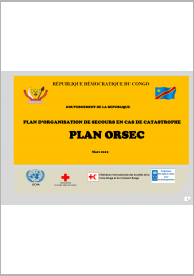
The ORSEC PLAN is intended to be a first step and a very important step in the perspective of the constitutional response to the question of national emergencies, constituting for the government a first-hand tool allowing it, not only, to know who is responsible for what task in case of which circumstance, but also the modality of activation of it and the coordination of intervention activities

Creates the civil protection council (CPC) under the Ministry of the Interior.

The overall objective of the contingency plan is to support the Comorian government in order to set up a real-time and coordinated response in order to minimize the humanitarian consequences of disasters on the populations.
The following strategic objectives constitute the basic interventions planned under this contingency plan:
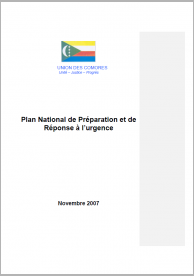
Provides national authorities and partners with a reference tool to better prepare and manage emergency situations.
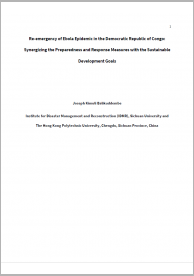
Ebola outbreaks which have re-emerged in the Democratic Republic Congo (DRC) have continued to galvanize the regional and global attention. The outbreaks are likely to transcend borders and threaten the global health crisis, especially by ensuring the “healthy lives and to promote the well-being for all at all ages” which is grounded in the sustainable development goals (SDGs).

This strategy aims to achieve the following objectives:
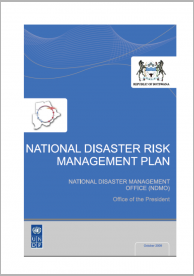
The National Disaster Risk Management Plan (NDRMP) will be the basis to establish policies, strategies and procedures that will guide all levels of society in disaster preparedness, response and risk reduction.

Approves the Organic Regulation of the Civil Protection and Fire Service in order to comply with the Organic Statute of the Ministry of Interior.
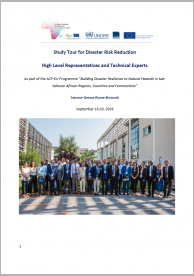
Within the Programme “Building Disaster Resilience to Natural Hazards in Sub-Saharan African Regions, Countries and Communities”, UNDRR and CIMA Research Foundation organized a five-day Study Tour in Europe – namely Italy and Brussels - for members of African countries.